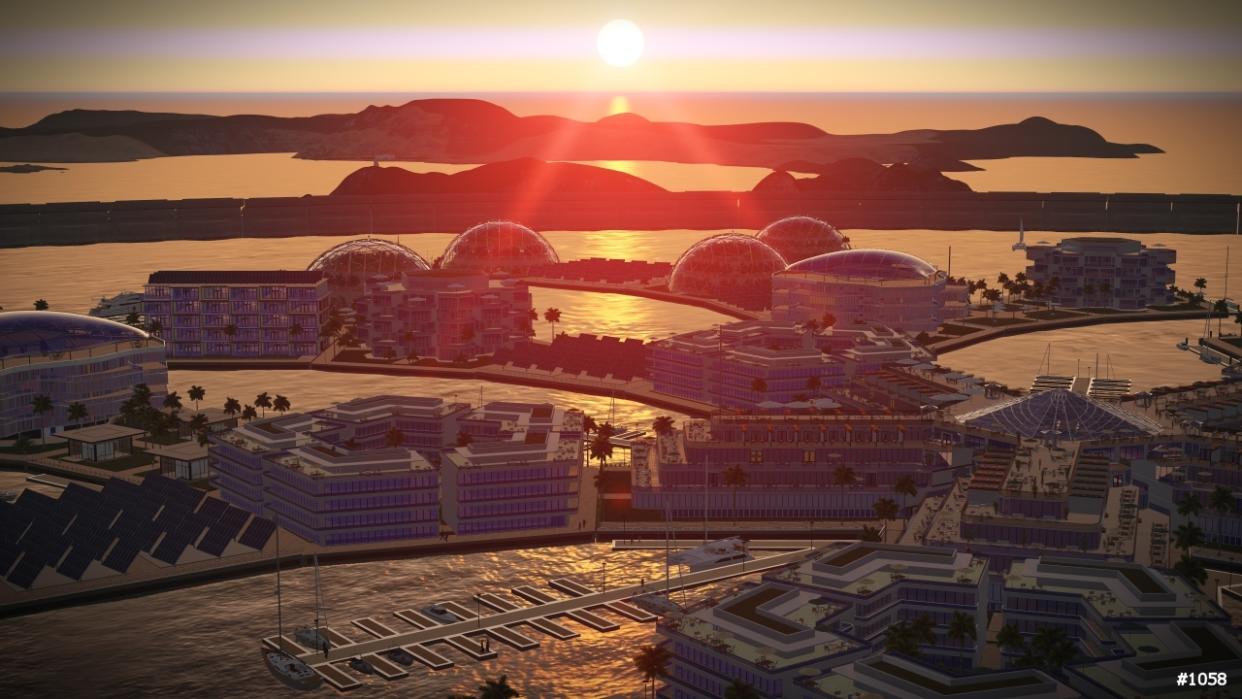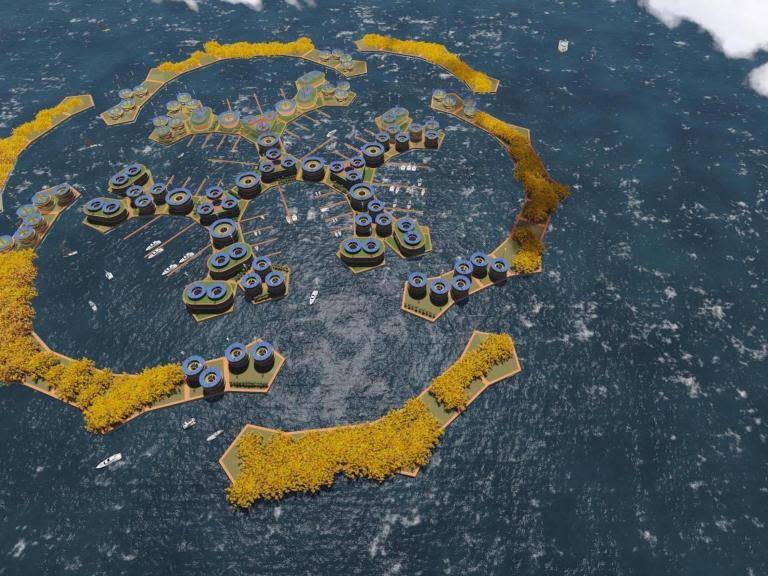World’s first ‘floating city’ to take to the sea in 2020 and ‘free us from politicians’

The world’s first floating city could appear in the Pacific Ocean near the Island of Tahiti by 2020 – with the goal of creating a country ‘free from politicians’.
And the idea might give rise to an all-new kind of human civilisation, according to one of the directors of the firm behind it.
The government of French Polynesia signed an agreement with a U.S. company, Seasteading Institute for a pilot project – to start construction in 2019.
MORE: ‘I’m disgusted with myself’: Man who left angry note on ambulance apologises after neighbour dies
MORE: Female TV producer claims a Government official groped her while she visited 10 Downing Street
The Seasteading Institute says it hopes to ‘liberate humanity from politicians’, and is financed by PayPal founder Peter Thiel.
Joe Quirk of the Seasteading Institute said in an interview that he hoped to see ‘thousands’ of floating cities by 2050, with each one ‘offering different ways of governance’.

.
Quirk said in an interview with the New York Times, ‘’Governments just don’t get better.
‘They’re stuck in previous centuries. That’s because land incentivises a violent monopoly to control it.’
The Seasteading Institute has spent five years researching the idea of permanent floating communities living in international waters.

Executive direcctor Randolph Hencken said in a previous interviewthat while the first city will be built in Polynesian water, in the future, the company hopes to create the basis of a new kind of society.
Mr Hencken said, ‘What we’re interested in is societal choice and having a location where we can try things that haven’t been tried before.

‘I don’t think it will be that dramatically radical in the first renditions.
‘But I imagine it has the opportunity to have different ways of voting for how things are run off the island instead of using the same systems that our great great-grandparents have given us that seem to have failed in so many first-world nations.’

 Yahoo News
Yahoo News 

